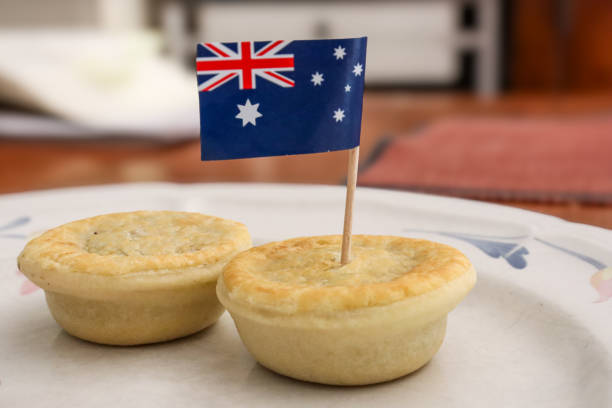Scones. They may be one of the nation’s all-time favorite baked items, but for a barely-thrown-together handful of pantry staples, they sure can cause a lot of controversy.
Should you use warm or cold butter? Do you need to add an egg when adding butter? What about cream? Lemonade, is it cheating? All of this is before we even begin to consider the jam-first versus cream-first debate.
Tasteaddresses the great scones debate here…if you are willing to give your opinion.
taste.com.au asked the Facebookverse for their opinions on what makes a good scone. We weren’t let down.
Taste has also delved into its recipe review archives to uncover some baking gems you’ve probably never seen before.
Were we able to reach a consensus on the recipe for the perfect scone formula? Not quite. We did find some clever hacks that you can use in your next session of scone-baking. Here are some of our favorites.
Your suggestions on the best ingredients to use in scones
“Lemon Juice in the Milk.” – Carol
“Replace butter with cream … no rubbing required. Turns out perfectly every time.” – BM
“I made scones with half cream and half tonic water, turned out better than I thought.” – Doris.
“Ginger beer puts a slight stance on what is a normal scone. Next raspberries and white choc bits. Raspberry jam and lashings of cream.” – Mitch
“Dates soaked in strong tea. Maybe a dash of yoghurt to make up liquid volume.” – Heather
“I have made this scone recipe many times. I always add baking soda and vinegar to add to the fluffy light feel.” – Gourmet belly button.
“I use powdered milk, which works well when making them with soda water.” – Beck.
“Sour cream keeps them soft and still good for the next day … if you have any left.” – Margaret.
“3 cups of flour and one cup of icing sugar.” – Steve
“Leave the milk out to till it starts to go off, very light touch when mixing and a gentle roll hot oven, then boom.” – Paula
“3 ingredient scones!! Lemonade, cream, and flour – cannot flaw this method!” – Jess
Best scone technique tips
They were incredible. I once saw them made in just three minutes, from the start of making them to getting into the oven. Beryl
“Your butter should always be cold when making scones. Best tip my grandmother ever gave me.” – Terri
“Treat very gently when cutting and placing them very close together on the tray for cooking.” – Jane
“1. Preheat oven 2. Sift flour 3. Lemonade and cream. 4. Knead slightly. 5. Don’t twist cutter. 6. Place scones close together so they rise!” – Josephine
“Put your tray in the oven with a dusting of flour to heat whilst you make the scones.” – Rayleen
“I always use a metal knife to mix. I think it’s because it prevents it from getting over-mixed.” – Julie.
“Cream instead of butter … even if the cream is past its use-by date …. always mix with a knife … cold hands … handle as little as possible…place them just touching on the tray … brush with milk… and really hot oven.” – Kyles
“I’ve used your basic scone recipe for decades. Always get compliments. People don’t believe that such a simple recipe is so perfect.” – Sue.
Can you cook scones using an air fryer or a microwave?
Absolutely! The hot air fryer works perfectly for fluffy scones. The Taste.com.au team of food experts tested different techniques and came up with the ultimate Air Fryer Scones recipe.
What is the secret of making great scones?
We wanted to hear the final word from Amira Georgy, digital food director at Taste.com.au. Here are some of her tips.
Should you add sugar when making scones?
You won’t have to add any sugar if you make traditional scones and serve them with jam.
If you prefer your scones sweeter, add 1-2 tablespoons of caster or brown sugar after you have rubbed in the butter.
Sugar will cause your scones to brown faster, so keep an eye on the oven.
Should baking powder be added to scones when making them?
You don’t usually need to add baking powder if you use self-raising or self-rising flour.
If you use plain flour, however, you’ll need to add baking soda to make the scones rise.
Can you add eggs to your food?
It’s common to add eggs to a recipe for scones because they help bind ingredients. It’s not necessary (and many of our scone recipes are eggless).
What is your ultimate tip for a perfect rise in scones?
Use only butter that has been well chilled. Make sure to use the right amount of baking soda or bicarbonate in your recipe.
Leavening agents are substances that release carbon dioxide, which is released in the form of bubbles as heat is applied. This helps the scones to rise and gives them a fluffy and light texture.
It’s best to use a round cutter rather than a ball-shaped one when cutting the scones out of the dough. This way, you are handling the dough much less.
When I push down the cutter, I don’t twist and turn it.
For perfect scones, some bakers recommend lemon, vinegar, or even “on the turn” milk. Would you recommend any?
All of these have an acidity that can react with the bicarbonate soda to help the scones rise.
If you are using baking powder as your leavening agent instead of bicarbonate soda, the acid won’t react with it.
What is your best tip for making scones?
The better your scones are, the less you have to handle the dough. When adding any other ingredients to the dough, use a butterknife (leaving some lumps is fine).
Knead the dough only until it comes together.

